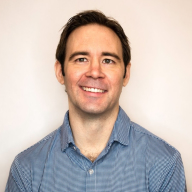
aaronhamlin
Bio
Participation1
I've successfully founded and grown two nonprofits from scratch, each reaching $1M+ budgets. These were The Center for Election Science and Male Contraceptive Initiative. I first learned about EA in 2016 and went to my first EA event in 2017. My formal education is in the social sciences and law. You can find my writing and resources at www.aaronhamlin.com.
How others can help me
I'm doing a fellowship at Show Me Integrity where I'm writing a book on voting methods. This is self-funded and I'm still seeking the remaining funding to complete the project. I'm also looking for funders for statewide ballot initiative campaigns in the US.
How I can help others
I'm highly familiar with tax law and philanthropy. I'm a great resource for tax-efficient giving. I also have 10 years of experience starting and running nonprofits.
Posts 11
Comments61
I consistently recommend Fidelity to others when talking about DAFs. Here's an article I did on DAFs.
Why Fidelity Charitable?
- They're the largest DAF in the world and have efficient internal processes. They approve pretty much everything and if it's new or controversial to them, they get back to you quickly.
- They make direct transfers to the charity's bank account. You don't want some check just flying around. Many banks send off paper checks. No need for that nonsense.
- They also handle cryptocurrency, which is nice. There may be some extra paperwork, but it's largely quite useful.
- Their fees are low. If you quickly donate from your account anyway, there's nothing to really get hit with. If you leave funds in there, minimal investments should cover any fee. Remember that the job of a DAF is not to have it sit around and make more money. You do that with investments before they go into the DAF.
- They make it easy to transfer assets to the DAF from other banks. If you use Fidelity already, it's even easier. They even have a tool that lets you see the most tax-efficient stocks to give (It looks at the most appreciated stocks you've held over a year).
Bonus tip:
Don't forget to set a charitable beneficiary for your DAF, just as you can do for any other financial account.
If you like, I talk with lots of folks on technical aspects of giving, particularly as it also relates to balancing practical considerations like retirement. Feel free to message me.
You can also check out a number of essays I've written on this topic: https://www.aaronhamlin.com/articles/#philanthropy
I know our team isn't super excited by this switch by Every.org. Will be interesting to see how it goes.
This is a big need for a lot of organizations, including ours at The Center for Election Science. We're looking for especially well networked candidates, particularly those who could help with funding bottlenecks. We use committees to do internal board duties. See our board posting here: https://electionscience.org/join-our-board/
"I am skeptical whether CES will be able to have much influence at the federal level . . ."
It's worth mentioning that CES highlighted that approval voting was able to be used for US House, US Senate, Presidential general, and Presidential Primaries with state-wide ballot initiatives. This information seems to be missing in the write-up and instead states that it doesn't influence Federal elections.
The write-up also seems to portray local-level reform is CES' only goal. Again. we provided feedback on this issue. We also corrected the review on the cost efficiency, which is incorrect.
We hope that our feedback is more fully considered in future reviews and that this doesn't dissuade others from supporting our critical work.

The implementation keeps the primaries throughout the state as-is.
Right now, Missouri's primaries are "open" in the sense that you must vote within a party, but you can choose which party at any time. This would stay the same, but in both the primary and general, approval voting would be used. The campaign chose this system-wide change as the easiest option.
Additionally, approval voting would allow for independents to be viable candidates in the general.